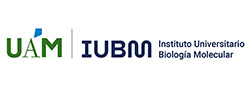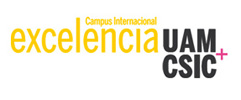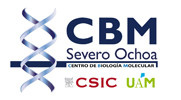Ultrahigh-throughput discovery and engineering of enzymes for biotechnological applications
Prof. Aurelio Hidalgo Huertas. Profesor Titular. Departamento de Biología Molecular. UAM.
Prof. Patricia Pérez-Arnáiz. Profesora Ayudante Doctora. Departamento de Biología Molecular. UAM
Microbial diversity is a vast reservoir of genetic information that can be valorized through industrial application, from biosynthetic gene clusters to novel enzyme catalysts. The synergy between new experimental discovery tools based on biology and those based on nanotechnologies are instrumental to find relevant genes faster and more efficiently, particularly enabling academic labs to undertake screening campaigns until now costly and limited to large enterprises.
In the HT Discovery lab, we develop methods to discover and engineer industrially relevant enzymes and biosynthetic gene clusters in the natural or artificial genetic diversity. One of the tools to discover new or improved enzymes are biological selections: inexpensive methods to find enzymes that couple the improved fitness of a protein to the survival of a biological host under selective pressure. In our group, we develop and apply biological selections to enhance the activity of enzymes with “unnatural” substrates relevant for the pharma and fine chemical industries and the stability of enzymes to withstand harsh conditions of industrial processes, such as the presence of organic cosolvents or high temperatures. Using such methods, we have developed selective and stable transferases in the frame of regional and national research grants. Subsequently, after suitable enzymes are found, we study the underlying rationale for their improved fitness, often using bioinformatic approaches, thus uncovering how and why enzymes function and ultimately, learning the language of proteins.
However, the complexity of cellular metabolism limits the applicability of biological selections. For this reason, we also work on screening methods, which involve individual enzymatic assays in vitro of each enzyme variant generated. To shorten this long, tedious and expensive process, droplet microfluidics enables the miniaturization of assays with throughput of kHz rates as well as a 1000x reduction of volume and assay costs. Moreover, microfluidics enables the conversion of general lab operations (additions, aliquoting, detection of a given property) into a particular chip design. Using ultrahigh-throughput screening, we have developed screening methods for esterases, KREDs, lyases and other enzymes in the EU-funded projects MetaFluidics, RadicalZ and CC-TOP. The enzymes discovered using these methods are not only located in unexplored regions of sequence space, but sometimes exhibited much coveted properties for subsequent engineering, such as catalytic promiscuity.


